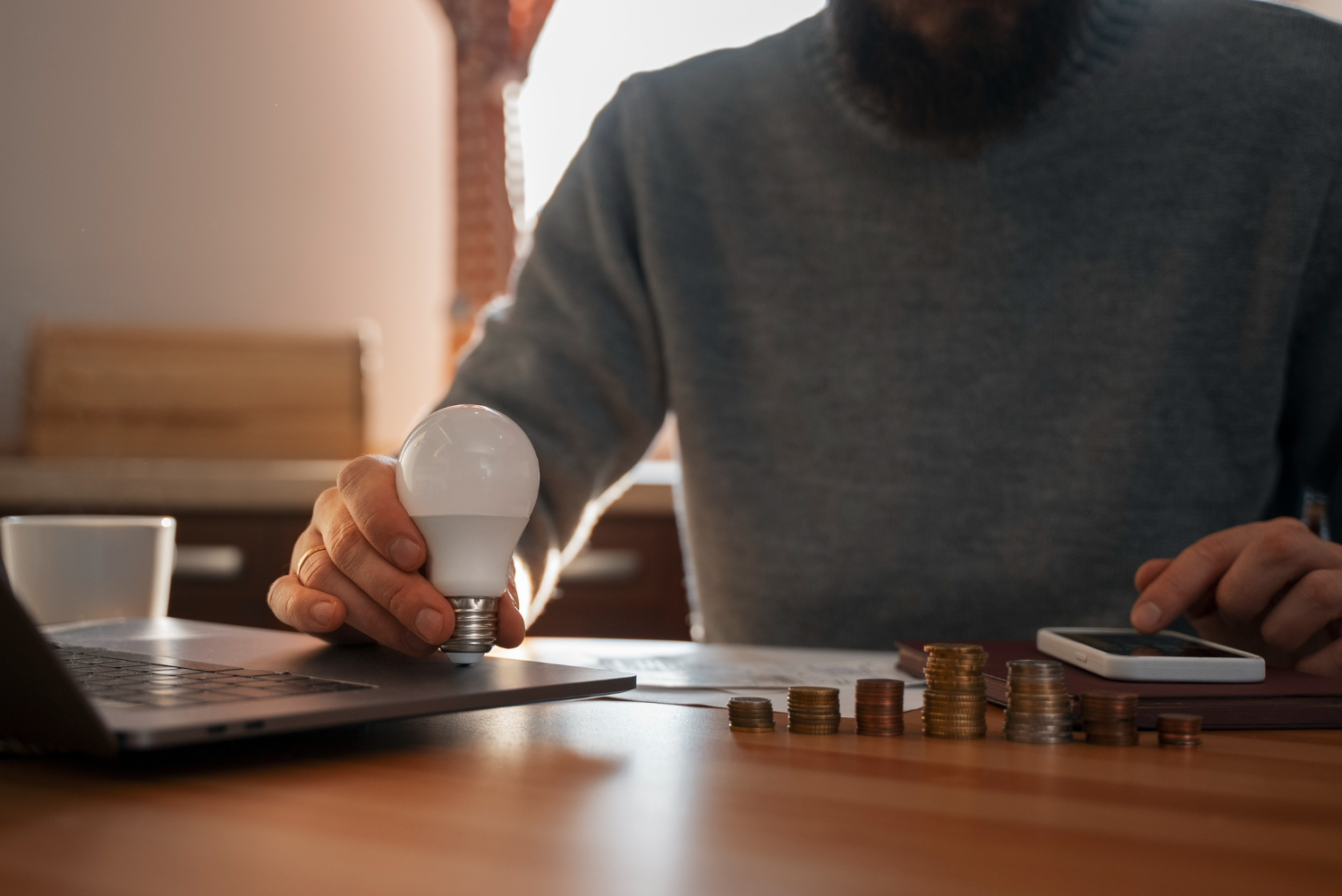
With energy prices rising, it’s worth trying new cost-saving measures at home.
Beyond turning down the thermostat, homeowners and tenants should learn how to reduce their consumption, save cash, and contribute to a greener local environment. Below, we’ve listed five smart strategies to help you achieve your eco-friendly home goals.
Table of Contents
Upgrade your heating system
Heating systems are one of the most significant contributors to overall household energy consumption – and CO2 emissions too. In fact, heating homes accounted for nearly one fifth of all the UK’s greenhouse gas emissions in 2021.
To maximise efficiency in your own house, it’s vital to keep your heating system regularly serviced and maintained. If you’re using an older system, replacing it with an energy-efficient model could result in big savings.
For example, modern combi boilers can lower your heating costs by combining heating and hot water systems into one unit. They only power up when you need them to, which saves electricity and gas wasted on heating an empty house.
Install smart thermostats
Smart thermostats are a bit of a game-changer in home energy management.
These clever devices allow you to control your heating systems from your phone. You can set specific schedules and preferences, or you could simply keep a manual on/off control pattern going. But when you harness the automation within these devices, they can learn your routine and automatically adjust to optimise energy use in your house.
Investing in a smart thermostat means saving money on your bills and enjoying a warm house or piping hot water when you need it most.
Improve your insulation
Quality insulation is highly important if you’d like to maintain a comfortable and consistent temperature inside your house.
With the right volume and material of insulation, you’ll reduce the need for excessive heating or air conditioning too. You should insulate your roof and loft, along with the floors, to prevent heat loss during the winter. This might look like thick carpets, rugs, or a combination of the two.
Double-glazed windows and professionally insulated doors also make a massive difference to the temperature of your home. With enhanced insulation and draughtproofing, you can keep your heating costs lower.
Use water-saving devices
If you’re guilty of spending far too much time in the shower, a low-flow showerhead could help you to cut back on this crucial area.
But water-saving devices aren’t limited to the bathroom. Your household could benefit from faucet aerators and efficient toilets to make sure that even the most mundane daily processes don’t waste water.
You may also choose to collect rainwater with a water butt for your gardening needs – and upgrade to an energy-efficient water heater. These measures, whether independently or collectively, help to conserve water and reduce the energy your house needs to heat it.
Review your energy use!
Finally, it’s worth keeping tabs on your energy use if you’re serious about saving money.
While a smart meter can provide useful real-time data to help you save on a day-to-day basis, the most accurate information on how you use energy requires an audit. Professional energy auditors will be able to assess your usage and recommend the most suitable improvements for enhancing efficiency.
Understanding the specific needs of your property – and how these can be adapted to your lifestyle – is even more important than just following the latest energy-saving trends.


